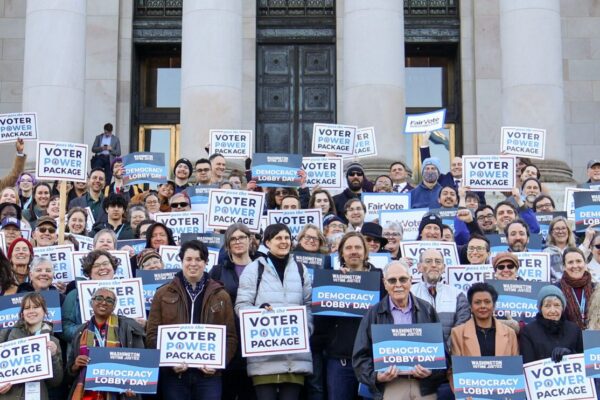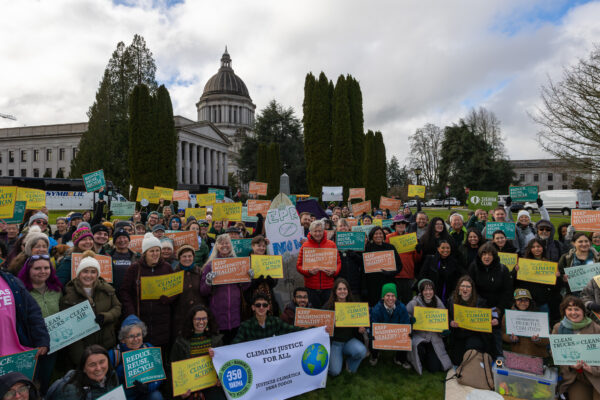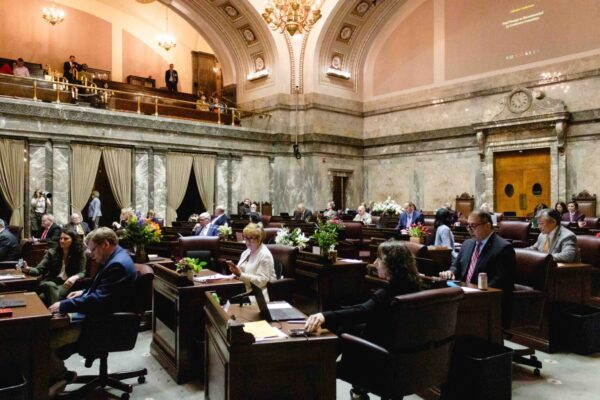“The Legislature missed a huge opportunity to make real progress on the environment this session, especially around our clean water priority,” said Kurt Fritts, executive director of Washington Conservation Voters. He continued, “While we credit them for taking action in some areas, they didn’t step up to address the state’s biggest water pollution problem, and now that issue only becomes more urgent next year.”
The Environmental Priorities Coalition chose three priorities for consideration during the 2010 legislative session. Collectively, they aimed to not only address the state’s environmental challenges but also support its economic recovery.
The three priorities were the Working for Clean Water bill (aka Clean Water Act of 2010), Sustain Environmental Protections in the Budget, and the Safe Baby Bottle Act. In addition, the Coalition sought to uphold Initiative 937. The Legislature did not pass the Clean Water Act, and did reinstate funding for several core environmental programs, did pass the Safe Baby Bottle Act, and did not modify I-937.
The Clean Water Act of 2010 proposed a permanent increase in the existing Hazardous Substances Tax. The additional revenue would have raised more than $100 million each year for local stormwater infrastructure projects. The projects would have helped reduce polluted runoff from entering waterways around the state. Current funding for these projects comes in part from local utility bills and property taxes.
“This bill asked polluters to help pay for stormwater cleanup, as individuals like property owners and utility customers already are,” said Mo McBroom, lobbyist for the Washington Environmental Council. She continued, “It’s a serious blow to Puget Sound, the Spokane River and the people of Washington that the Legislature passed on a chance to generate new jobs and a long-term solution to the number one water pollution problem in the state.”
While the Legislature did not pass the Clean Water Act, they did budget a one-time $50 million for stormwater cleanup in 2010. According to McBroom, these funds are a meaningful down payment for stormwater infrastructure over the next year, but also highlight the long term fiscal burden faced by Washington if lawmakers fail to enact a significant and sustained new funding source.
The Sustain Environmental Protections in the Budget priority aimed to preserve funding in the state budget for core environmental protections. Most of the programs the Coalition identified as critical retained their funding. Programs protected by the priority are in the areas of toxic contamination cleanup, air quality, water quality, water resources and habitat protection.
“During these tough economic times, we appreciate the work the Legislature did to sustain environmental protections in the budget” said Bill Robinson, state government relations director for The Nature Conservancy. “This shows they recognize these core environmental programs as essential to the health of our state and our economy.”
The Safe Baby Bottle Act was signed into law by Governor Gregoire in March. The legislation makes Washington the second state to ban bisphenol A (BPA) in sports bottles and the fifth to take action on the chemical in children’s dishware.
“BPA is a bad actor chemical, and the legislature has done the right thing in passing this priority that gets it out of products that expose kids and pregnant women. This is a victory not only for children but for parents, too, who can now go to the store and buy cups and bottles with confidence they are BPA-free,” said Ivy Sager-Rosenthal, campaign director at the Washington Toxics Coalition.
In addition to the three Priorities, the environmental community maintained the strength and integrity of Washington’s Clean Energy Initiative, I-937, for the second year in a row. Passed by voters in November of 2006, the initiative sets minimum requirements for the state’s major utilities to invest in clean energy and energy efficiency.
The Legislature also passed a number of other bills benefiting the environment. Passed on the final day of session, the Jobs Act sends a referendum to the voters this fall that, if approved, would provide $505 million in state bonds to make energy efficiency upgrades to public schools. Lawmakers also enacted a requirement that producers of mercury-containing lighting fund recycling programs for CFLs and other fluorescent lights, and established future limitations on the use of copper in brake pads, a significant stormwater pollutant.


